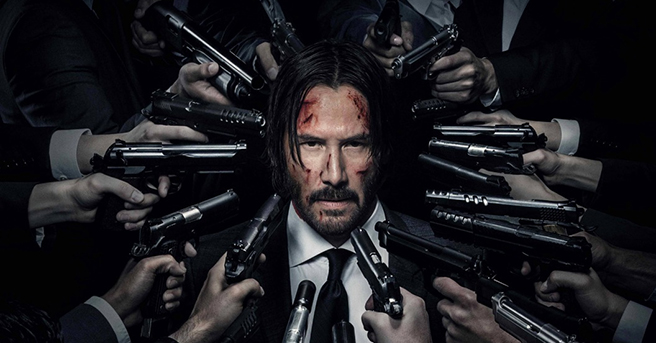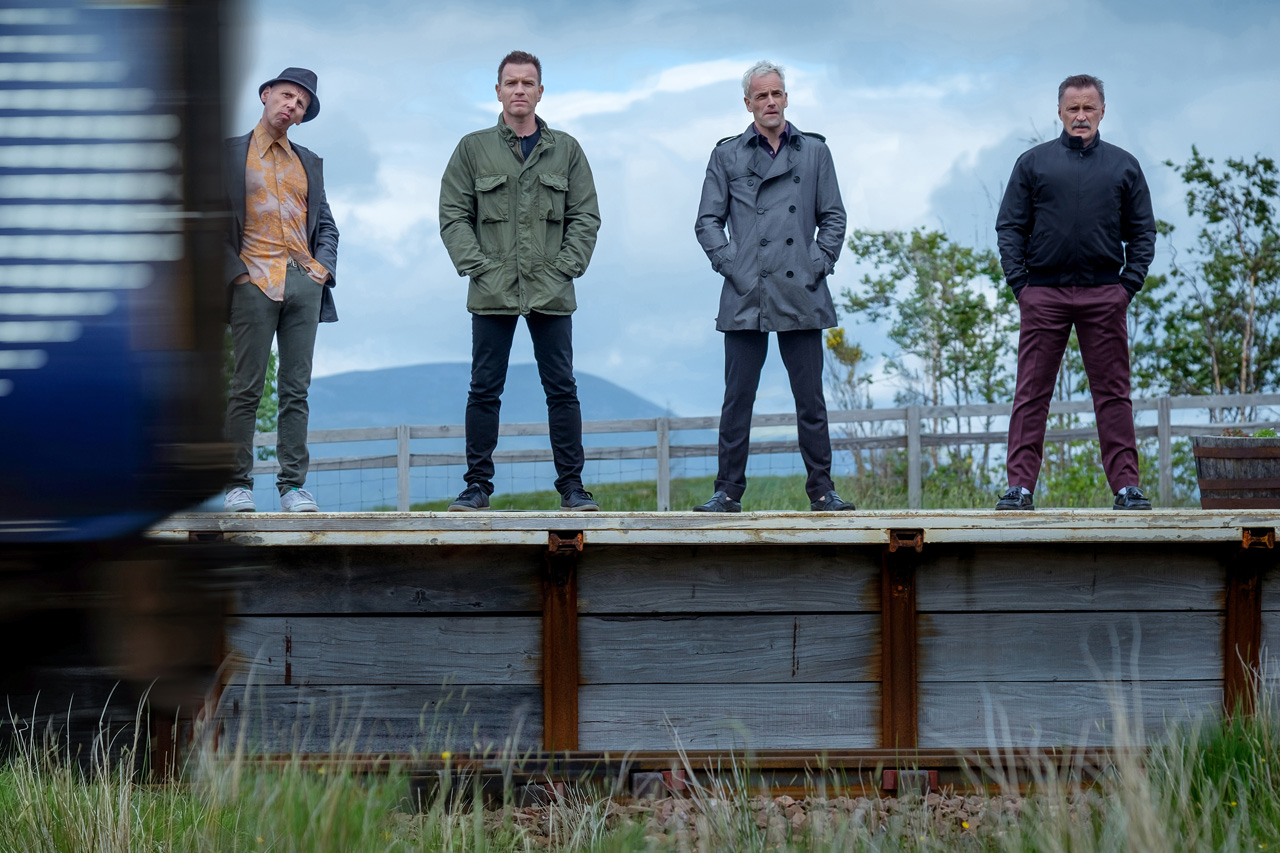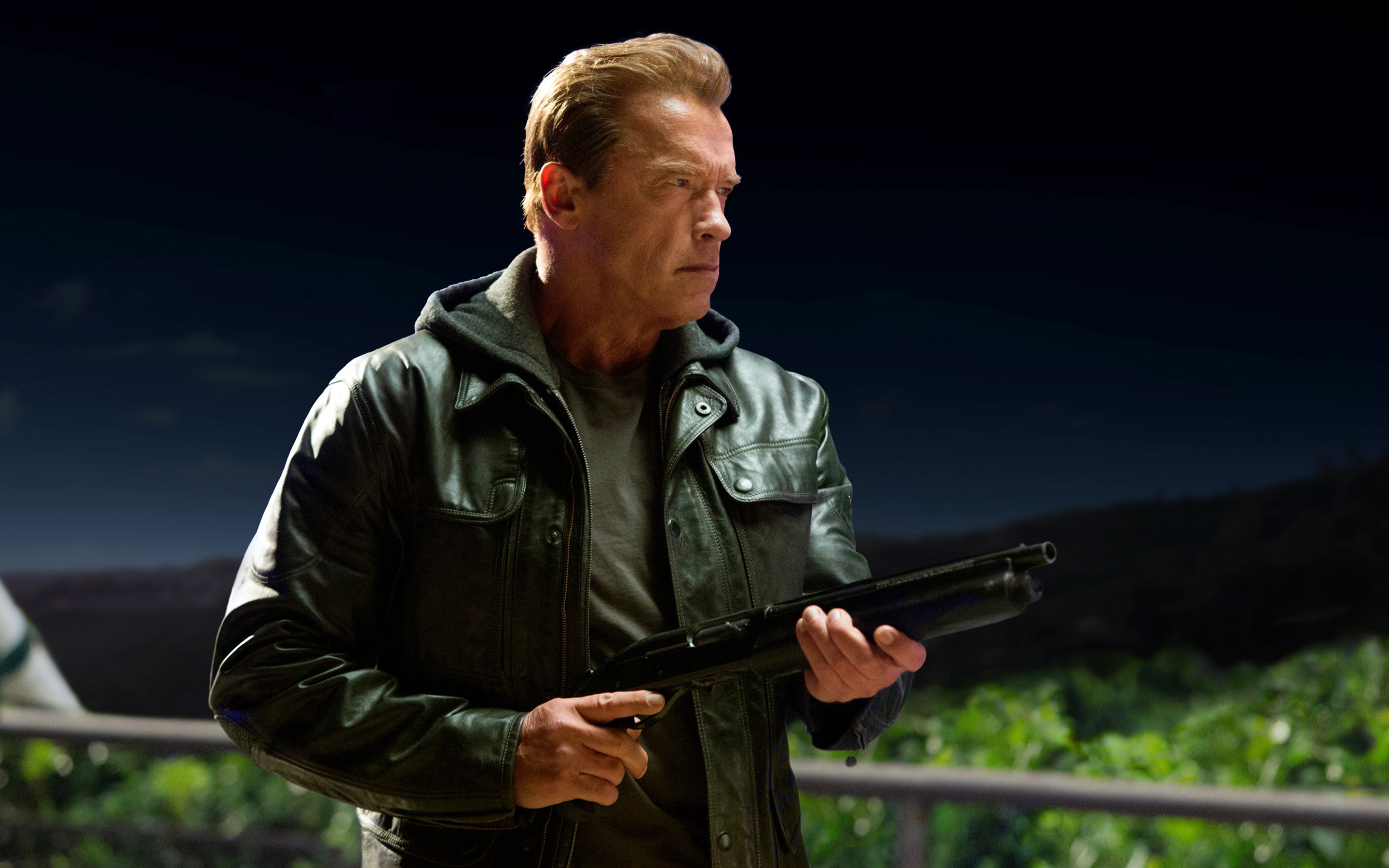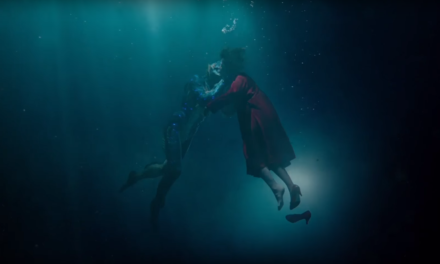In the book of Genesis, Noah’s motivations are never abundantly clear. We are given clear reasons for God’s intentions – man’s wickedness has scorched the earth and it’s time to push the reset button. Noah (Russell Crowe) is chosen (seemingly because he is one of humanities last vessels for good) to protect God’s creation by building a really nice boat. He does and the rest of the tale is history. What Director Darren Aronofsky does in his version of Noah is quite different. He dares to ask questions on a human scale. As people with an insurmountable task and unyielding odds – how would we react? What depth does Noah have to dive to find the steadfast faith to push forward? And what is our relationship with this earth?
In many ways Aronofsky (an outspoken atheist) is the perfect Director to approach this material. He is not an artist who has ever dealt in subtlety (see Requiem for a Dream, The Wrestler, Black Swan) so the broad strokes of Noah fit his sensibilities perfectly. There are times where Aronofsky allows his actors to plainly state their ambitions (characters say silly things like, “I cannot be stopped” and “only love can redeem us”) but his dedication to play the material straight never allows the film to stray too far into cheesy epic territory. This paired with his outrageous ambition make Noah his maddest folly yet.
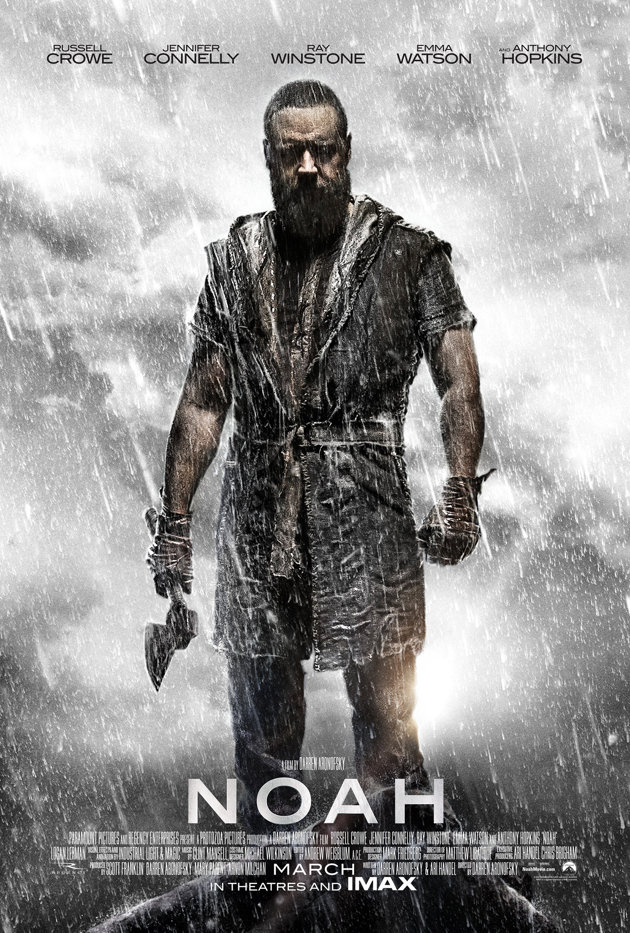 The monster scope of the story is on display from the first frame. We are given a brief historical lineage as Noah is witness to the murder of his father. Noah is a descendent of Seth and his people have been persecuted since Seth’s brother Cain killed his other sibling Abel. Cain’s descendants have raped and pillaged earth’s vast resources leaving people hungry and desperate. Meanwhile, Noah and his family have been left to scavenge the earth and do their best to survive unrelenting persecution.
The monster scope of the story is on display from the first frame. We are given a brief historical lineage as Noah is witness to the murder of his father. Noah is a descendent of Seth and his people have been persecuted since Seth’s brother Cain killed his other sibling Abel. Cain’s descendants have raped and pillaged earth’s vast resources leaving people hungry and desperate. Meanwhile, Noah and his family have been left to scavenge the earth and do their best to survive unrelenting persecution.
During a major league trip from a peyote session with his Grandfather Methuselah, Noah believes the creator has contacted him to save creation before he wipes Earth’s slate clean with a massive flood. The work on his famous sea fairing vessel begins in earnest after Noah convinces a band of fallen angels in the form of rock monsters (have to be honest, the rock monsters were amazing in IMAX) to serve their creator by helping Noah achieve this goal.
Of course, the evil descendants of Cain will not let Noah pursue such lofty ambitions without getting a piece for them. Their leader Tubal-cain (Ray Winstone) is a corrupt, conflicted man – angry that a supposed God of infinite power will not give him the advantages he needs to increase his stranglehold on the region. He wants the ark for himself because, in his mind, he deserves it.
These conflicts – both internal and external – are played out on the grandest scale. Aronofsky uses state-of-the- art CGI to display stampedes of animals, the great flood and recreates the story of creation from conception to the time of Noah’s people. Although not always perfect (the CGI gets a tad rubbery with the animals) his visual palate is never boring. The film weaves so many techniques it can feel experimental at times (the story of creation, for example, is done casino in a series of single frame cuts that is so inspired I could’ve watched 90 minutes of it.)
The actors that round out this epic are a mixed bag but ones that are precisely dedicated to the material. It’s safe to say that after a string of sub-par performances that Russell Crowe has returned to form. He all at once gives Noah the unrelenting faith needed to complete his life’s work and the inherent conflict that would come with wiping out all of civilization. He’s also a towering presence on screen and uses that to give Noah a confidence that lesser actors would simply not possess. Jennifer Connelly as Naameh is wonderfully strong as well. It would have been easy to relegate her to the background (which does happen occasionally) but her chances to challenge Noah’s convictions later in the film lead to some powerful work by both actors.
The teenage angst from the younger actors slightly tried my patience. Emma Watson as Ila and Douglas Booth as Noah’s oldest son Shem are both fine actors but I had little investment in their relationship. The drama felt tacked on and led to some unintended eye-rolls. The same can be said of Logan Lerman as Noah’s son Ham who’s given a motivation so silly and ham-fisted I had trouble ever taking him seriously.
That said, I admire Aronofsky’s approach immensely here. The text of Noah’s life in Genesis is a mere 5-chapters long. So much is said but it’s all interpretive. With artistic license firmly in hand Aronofsky sought motivation and conflict for nearly all of these contemplative passages. He nearly succeeded. And while I liked many of his choices more than others, the sheer audacity on display is reason enough to recommend Noah. It’s a tale that dares to ask tough questions of faith, redemption and the human condition. It’s a chance Hollywood should take more often…hopefully they do.


